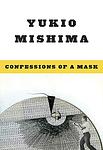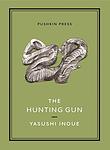The Greatest Japanese "Drama" Books of All Time
Click to learn how this list is calculated.
This list represents a comprehensive and trusted collection of the greatest books. Developed through a specialized algorithm, it brings together 290 'best of' book lists to form a definitive guide to the world's most acclaimed books. For those interested in how these books are chosen, additional details can be found on the rankings page.
Genres
Drama is a genre of literature that typically deals with serious and emotional themes, often exploring the complexities of human relationships and the struggles individuals face in their lives. These books often feature intense character development and intricate plotlines, delving into the depths of human experience and the challenges of navigating the world around us. From family dramas to political intrigue, the drama genre encompasses a wide range of stories that aim to captivate readers with their raw and powerful storytelling.
Countries
Date Range
Reading Statistics
Click the button below to see how many of these books you've read!
Download
If you're interested in downloading this list as a CSV file for use in a spreadsheet application, you can easily do so by clicking the button below. Please note that to ensure a manageable file size and faster download, the CSV will include details for only the first 500 books.
Download-
1. The Sea of Fertility by Yukio Mishima
"The Sea of Fertility" is a four-part epic that follows the life of Shigekuni Honda, a man who believes in reincarnation. The series spans several decades, beginning in the early 20th century and ending in the 1970s, and explores Japanese history, culture, and spirituality. As Honda encounters individuals he believes to be the reincarnations of his childhood friend, he grapples with questions of identity, mortality, and the nature of the soul.
-
2. Silence by Shusaku Endo
"Silence" is a historical novel set in the 17th century, which follows a Portuguese Jesuit missionary who travels to Japan to comfort local Christians and find his mentor, who is rumored to have renounced his faith. The protagonist experiences the brutal persecution of Christians by the Japanese government, and grapples with the silence of God in the face of suffering. The narrative explores themes of faith, doubt, cultural clash, and the human capacity for both cruelty and endurance.
-
3. The Makioka Sisters by Junichiro Tanizaki
"The Makioka Sisters" is a novel set in pre-World War II Japan, following the lives of four sisters from a once-wealthy Osaka family. The story focuses on their struggles to maintain their traditional lifestyle and status in a rapidly changing society. The two elder sisters are concerned with finding a suitable husband for the third sister, while the youngest sister, more modern and independent, resists the constraints of her family's expectations. The book provides a detailed and nuanced exploration of the clash between tradition and modernity in Japanese society.
-
4. The Twilight Years by Sawako Ariyoshi
"The Twilight Years" is a poignant story revolving around the life of a middle-aged woman who is burdened with the responsibility of taking care of her ageing and ailing father-in-law while trying to balance her work and personal life. The novel explores the themes of old age, family responsibilities, societal expectations, and the struggles of women in a patriarchal society. It offers a critical examination of the social, cultural, and personal issues related to aging and care-giving in post-war Japan.
-
5. The Sound of the Mountain by Yasunari Kawabata
The novel centers around an aging businessman who, upon hearing nightly sounds from the nearby mountain, begins to confront his own mortality and the complexities within his family. As he navigates his strained relationship with his wife, his adulterous son, and his daughter-in-law whom he harbors feelings for, he experiences a profound sense of solitude and existential dread. The narrative subtly explores themes of aging, alienation, and the ephemeral nature of life.
-
6. Confessions of a Mask by Yukio Mishima
The novel explores the life of a young man living in post-World War II Japan who grapples with his homosexuality in a society that does not accept it. The protagonist must wear a metaphorical mask to hide his true identity and desires, leading to a life of self-denial and inner turmoil. The narrative delves into themes of identity, sexuality, societal expectations, and the struggle for self-acceptance.
-
7. Forbidden Colours by Yukio Mishima
"Forbidden Colours" is a deeply introspective novel that explores themes of beauty, youth, old age, love, and betrayal, set against the backdrop of post-war Japan. The story follows a young, beautiful man who is manipulated by an elderly writer to seek revenge on women. The young man's beauty becomes a weapon, while the old man's bitterness and jealousy drive the plot. The novel delves into the darker aspects of human nature and society's obsession with beauty, providing a stark commentary on the human condition.
-
8. The Sound of Waves by Yukio Mishima
The novel is a classic tale of first love between a young fisherman and a pearl diver in a remote Japanese coastal village. The story is set in the post-war era and it explores themes of love, tradition, and the power of nature. The fisherman's love for the pearl diver is tested by the village's gossip and the jealousy of a wealthy rival. Despite the challenges, their love remains pure and steadfast, mirroring the timeless and unchanging rhythm of the sea and the cycles of nature.
-
9. The Waiting Years by Fumiko Enchi
The novel is a poignant exploration of the life of a Japanese woman in the late 19th and early 20th centuries, who endures the pain and humiliation of serving her husband's needs by finding him concubines. As she navigates the complexities of her role within a rigidly patriarchal society, she faces the emotional turmoil of sacrificing her own happiness for the sake of family duty and social expectations. The narrative delves into themes of female subjugation, the intricacies of marital relationships, and the silent resilience of women, offering a powerful critique of the era's gender dynamics and the personal costs of adhering to tradition.
-
10. A Dark Night's Passing by Naoya Shiga
The novel delves into the introspective journey of a troubled Japanese writer grappling with his own sense of guilt and the search for redemption. As he navigates through a series of personal tragedies, including familial betrayal and the complexities of love and loss, he embarks on a quest for self-understanding. Set against the backdrop of early 20th-century Japan, the narrative explores the protagonist's inner turmoil and his struggle to reconcile his societal obligations with his desire for personal fulfillment, ultimately leading to a profound transformation.
-
11. Coin Locker Babies by Ryū Murakami
The book follows the harrowing journey of two boys abandoned at birth in a Tokyo train station locker, who grow up in an orphanage together and form a deep bond. As they navigate a dystopian underworld filled with violence and decay, the boys, now teenagers, embark on a quest for revenge against the mothers who left them and the society that neglected them. Their search for identity and belonging takes them through a surreal landscape of urban chaos, where their shared trauma and desperation for meaning lead them down a destructive path, challenging the reader with themes of abandonment, survival, and the human capacity for both love and brutality.
-
12. The Woman in the Dunes by Kobo Abe
This novel tells the story of a schoolteacher and amateur entomologist who travels to a remote seaside village to collect insects. He is tricked into staying the night in a house at the bottom of a sand pit with a mysterious woman, who spends her days shoveling back the ever-encroaching sand. As the days pass, the man realizes he has been trapped and is forced to help the woman with her endless task, leading to a strange and consuming relationship filled with existential dread and fascination.
-
13. The Hunting Gun by Yasushi Inoue
"The Hunting Gun" is a poignant tale set in post-war Japan, revolving around the lives of three women who unknowingly share a common bond, a man with whom they are all involved. The man's secret love affairs and the emotional turmoil they cause are revealed through letters from each of the women. The narrative explores themes of love, betrayal, and the complexities of human emotions, painting a vivid picture of the human condition and the consequences of hidden passions.
-
14. The Love Suicides At Sonezaki by Chikamatsu Monzaemon
"The Love Suicides at Sonezaki" is a poignant Japanese play that tells the tragic story of two lovers, a young merchant named Tokubei and a courtesan named Ohatsu, who are driven to commit suicide together due to insurmountable societal pressures and personal betrayals. Set in the pleasure quarters of Osaka, the narrative explores themes of loyalty, love, and the harsh consequences of rigid social structures. As Tokubei faces betrayal by his unscrupulous uncle and Ohatsu suffers at the hands of her manipulative brothel owner, the lovers see no escape from their torment other than through death, leading them to make a profound and tragic decision.
Reading Statistics
Click the button below to see how many of these books you've read!
Download
If you're interested in downloading this list as a CSV file for use in a spreadsheet application, you can easily do so by clicking the button below. Please note that to ensure a manageable file size and faster download, the CSV will include details for only the first 500 books.
Download












